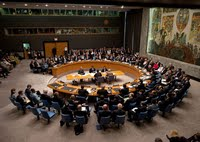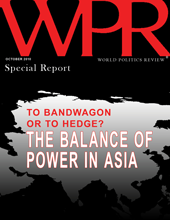
When the Nobel committee selected Liu Xiaobo as the winner of this year’s Nobel Peace Prize, the distinction brought unwanted attention to China. For obvious reasons, Beijing did not want the world honoring a man who has dedicated decades to challenging the country’s political system. But Beijing, in fact, seems uncomfortable with any kind of attention. Earlier this year, when the Chinese economy overtook Japan’s to become the second-largest in the world, Chinese officials seemed determined to downplay what is by any measure an impressive achievement, declaring that the rising Chinese powerhouse remains “a developing country.” To be sure, China […]


